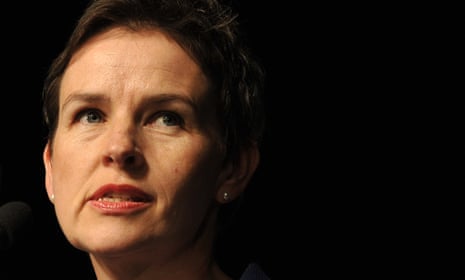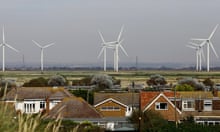The head of a parliamentary committee is to demand ministers introduce tougher safeguards to ensure the Green Investment Bank continues with its low-carbon mandate following a controversial privatisation.
Mary Creagh MP, who chairs the environmental audit committee (EAC), also expressed concern that the bank could in future put more effort into overseas projects than in supporting the domestic sector for which it was set up.
The government has said it will retain a special share in the lending institution. It insists this will prevent new owners deviating from the core task of funding renewable energy projects that are deemed at risk by traditional lenders.
But in a letter to the Guardian before the debate on the sale of the bank in the House of Commons, Creagh writes: “I welcome the secretary of state’s pledge to protect the bank’s green status with a special share, as my committee recommended, but I am concerned that without locking this in legislation it may not be secure.
“I will be supporting amendments to that effect when the sale is debated in the Commons this week. If the government cannot guarantee that the Green Investment Bank will continue to invest in smart, energy-efficient, low-carbon projects, then the sale should not go ahead.”
The Labour MP added that she would also be demanding that the government write in a requirement to the sale document that the senior executives continue to give details of their pay and conditions to parliament.
“Too often in the past we have seen privatised companies bumping up executive bonuses and incentives on the back of better financial results produced by stripping out the head count,” she writes.
Concern has been raised by the green lender admitting it has already been approached by potential buyers from the private equity, sovereign wealth and private investment bank sectors.
Creagh also said she was alarmed that Shaun Kingsbury, the chief executive of the bank, had already indicated he wanted to expand into places such as Germany, the Netherlands and India. This would take the bank away from its original purpose, to accelerate a move towards a low carbon economy, she added.
The bank has so far put £2.6bn of public money into British low-carbon projects, although it is involved in £200m international joint venture with the Department of Energy & Climate Change.
Lord Smith of Kelvin, who chairs the bank, has argued that privatising the group would allow it to raise money from other investors and widen the scope of its investments in the UK.








Comments (…)
Sign in or create your Guardian account to join the discussion